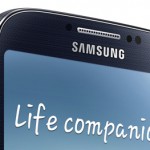Companies in Asia-Pacific could spend US$39 billion this year to counter problems that are caused by malware found in counterfeit software, with the cost going up to a staggering US$129 billion if data loss is considered.
Globally, the number goes up to US$114 billion in direct costs and almost US$300 billion, if data loss is included, according to a recent study by research firm IDC.
Released last week, the study commissioned by Microsoft also predicted that one in three enterprise PCs using pirated software will be infected in 2013. This is due in part to the amount of such software exceeding two billion programs this year, three times that in 2006.
Companies are not the only ones to be worried, cautioned the report. Consumers, it predicted, would spend 1.5 billion hours and US$22 billion to identify, repair and recover from the impact of malware when they use counterfeit software.
The study analysed 270 websites and peer-to-peer (P2P) networks, 108 software downloads, and 155 CDs or DVDs. IDC also interviewed 2,077 consumers and 258 IT managers or chief information officers from Brazil, China, Germany, India, Mexico, Poland, Russia, Thailand, the United Kingdom and the United States.
Researchers claim that 45 per cent of counterfeit software is downloaded from the Internet, of which almost three-quarters are downloaded from P2P networks or websites and contain some types of spyware. Thirty-six per cent of the software contained Trojans and adware.
In the IDC white paper, an alarming 74 per cent of workers admitted to installing personal software onto corporate computers, despite only 12 per cent of the software installed being problem-free.
According to a separate study done by Microsoft in Southeast Asia in February 2013, 69 per cent of the 282 PCs from Indonesia, Malaysia, Thailand, Philippines and Vietnam that were examined had counterfeit software installed which was infected with malware.
Microsoft believes the PCs were not originally installed with counterfeit software. Instead, the computers arrived with non-Windows operating systems, which were then replaced by individuals or retailers who duplicate and distribute pirated software.
More information about the study commissioned by Microsoft can be found here.







